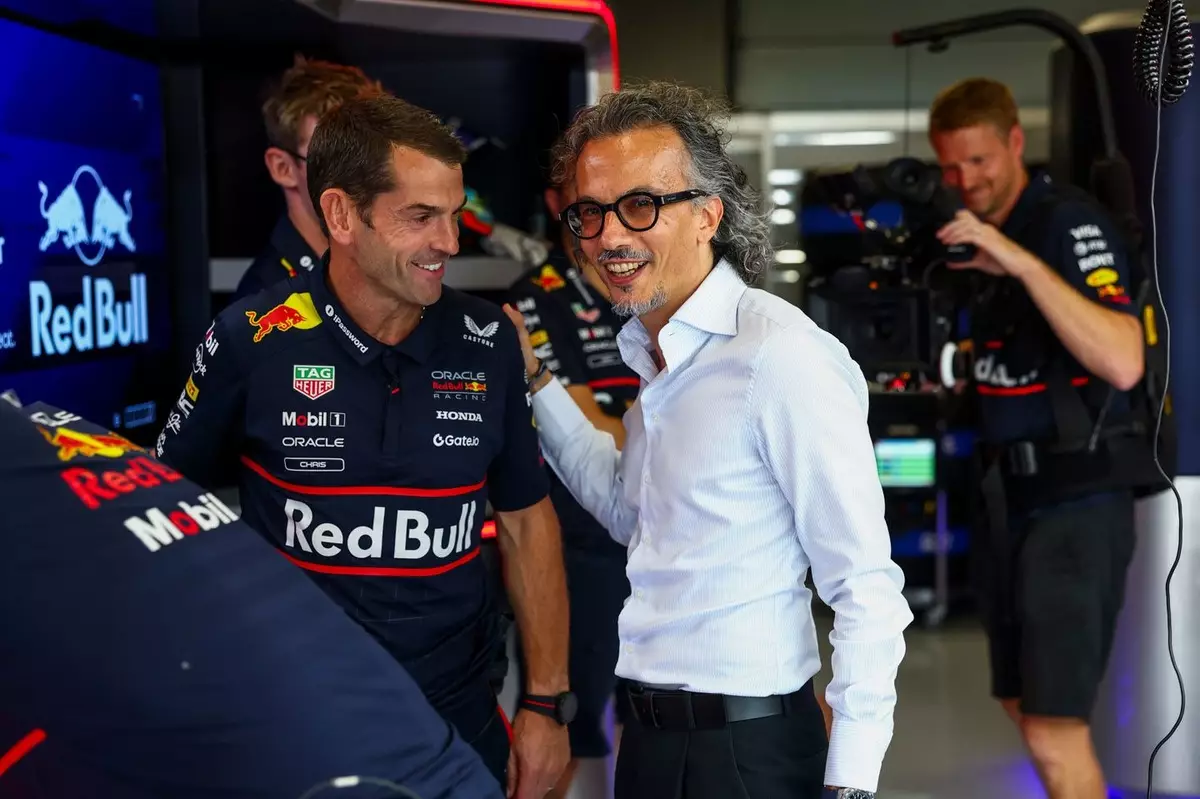Red Bull Racing stands at a pivotal crossroads, and the recent appointment of Laurent Mekies as team principal and CEO signals a strategic move aimed at restoring its competitive edge. The decision to replace Christian Horner, a figure who crafted the team from a modest beginning into a Formula 1 powerhouse, reflects a paradigm shift that is both bold and necessary. While Horner’s tenure was characterized by remarkable success—two dominant championship runs and the nurturing of stars like Vettel and Verstappen—the changing landscape of Formula 1 demands fresh perspectives. Mekies, with his extensive background and proven leadership skills, is poised to steer the team towards a future that balances tradition with innovation.
Rather than merely filling shoes left vacant by Horner, Mekies’ appointment seems rooted in a calculated understanding of the evolving sport. Red Bull’s core challenge lies not only in maintaining their current performance but also in pioneering developments, particularly with the in-house engine project set for 2026. This transition encompasses more than technical rigor; it requires dynamic leadership capable of harmonizing diverse departments and fostering a culture of relentless improvement. Mekies’ history in racing management and technical oversight signals that Red Bull is betting on a leader who can elevate the entire organization, merging engineering prowess with strategic acuity.
The Strategic Value of Continuity and Innovation
Permane’s confidence in Mekies stems from his intimate knowledge of racing culture and his leadership qualities. His reputation as a “people person” who truly understands the human element behind racing operations is crucial in a sport where team cohesion often correlates with performance. Motorsport is not merely about engineering excellence; it’s about inspiring teams, managing egos, and making calculated decisions under pressure. Permane’s acknowledgment that Mekies has “all the right attributes” underscores the importance of leadership that combines technical expertise with interpersonal skills—a combination that could be the catalyst for Red Bull’s resurgence.
Furthermore, Permane highlights the seamless collaboration between Racing Bulls in Faenza and the main outfit in Milton Keynes. This synergy-sensitive approach reflects a mature understanding that success in modern Formula 1 hinges on collaboration and integrated operations. The fact that Racing Bulls will continue supporting in areas like suspension, gearboxes, and engine development is a testament to the value of internal expertise, even as the broader organizational structure shifts. Such integration ensures that Red Bull maintains technical continuity while adapting to regulatory and technological advancements.
The move to develop their own engines for 2026 signifies strategic foresight. The in-house engine project is a gamble—one that demands leadership capable of navigating technical complexities and logistical challenges. Mekies’ background suggests that he possesses the insight to oversee such an ambitious overhaul, positioning Red Bull to potentially become a full-scale manufacturer in a sport increasingly driven by innovation and proprietary technology.
Challenging the Status Quo with Confidence and Vision
Perhaps the most compelling aspect of the leadership change is the message it sends about Red Bull’s appetite for growth and excellence. Moving away from comfort zones and embracing leaders with a track record of adaptability signals an ambition to not just compete but to dominate in the long term. It’s a recognition that continuous evolution is necessary, and that resting on past laurels could be detrimental in a sport where the margins for success are razor-thin.
Mekies’ appointment also suggests that Red Bull is embracing a strategy centered on stability through change. His experience working closely with Permane at Racing Bulls implies that there is a shared vision rooted in technical excellence and forward-thinking management. This alignment could serve as a crucial foundation for executing high-stakes projects, from improving on-track performance to pioneering engine technology.
Ultimately, Red Bull’s leadership overhaul symbolizes a calculated leap into a new era—one that values innovation, strategic diversification, and resilience. With Mekies at the helm, backed by a strong management team and a culture of continuous improvement, the team is poised to challenge its rivals more fiercely than ever. Whether this strategy will bear fruit remains to be seen, but the confidence exuded by insiders suggests that Red Bull is setting itself up for a future where agility, innovation, and relentless pursuit of excellence reign supreme.

